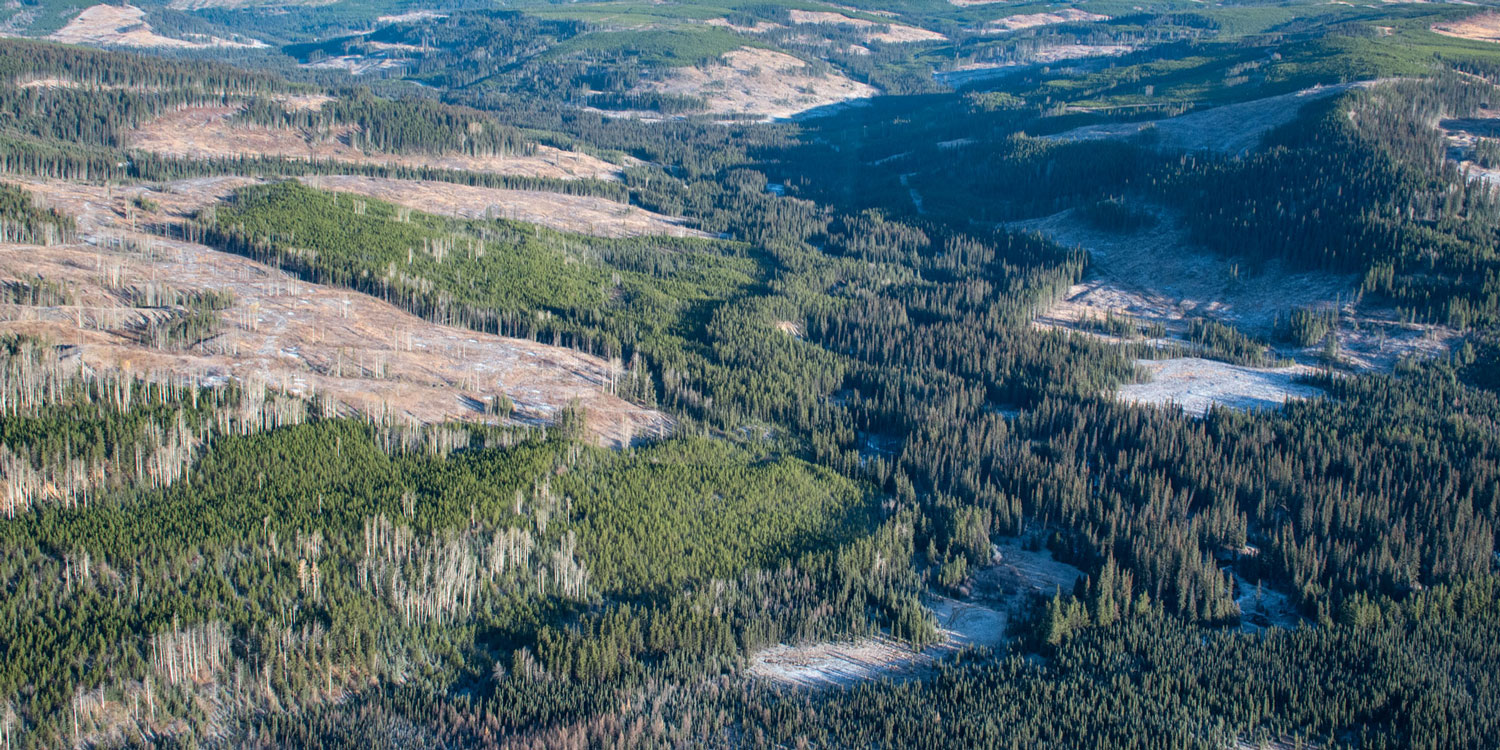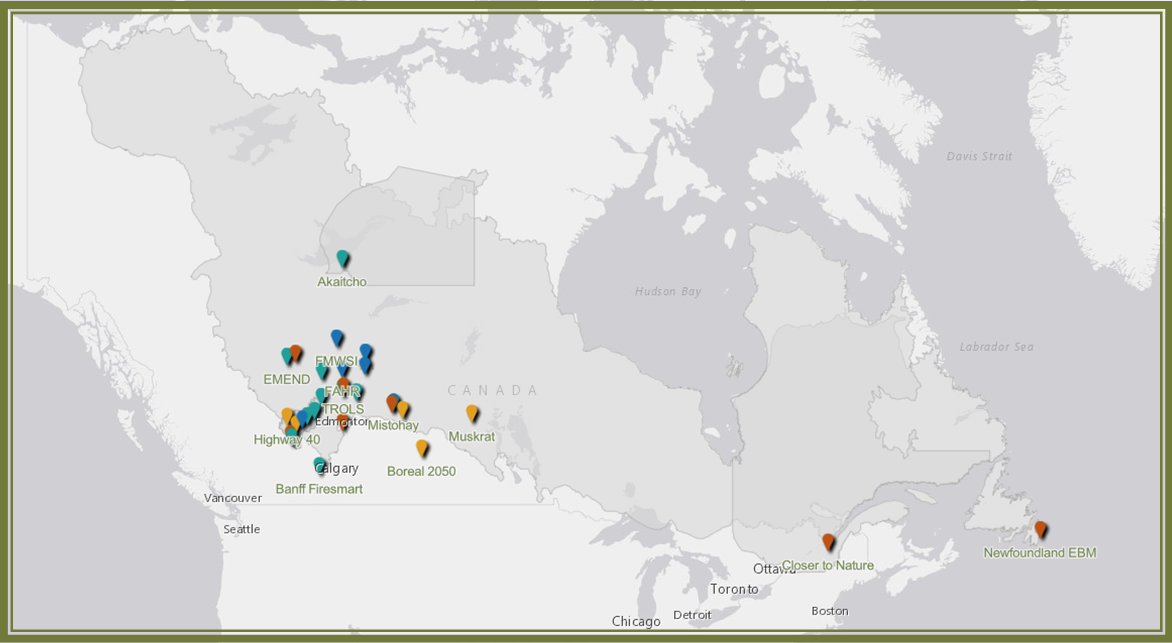When trying to achieve something new or challenging, sometimes the best thing you can do is look to others who have been there, done that. Of course, their circumstances will never be exactly the same as what you face today, yet their experiences can help you understand what worked, what didn’t, and which pitfalls to look out for.
This is exactly what we aim to accomplish by hearing the experiences of speakers from across North America who have been there, done that when it comes to implementing ecosystem-based management.
Laird Van Damme, Jean-Pierre Jetté, Mike Brienesse and Shawn Morford will be sharing their firsthand experiences implementing ecosystem-based management. Their experiences range across the realms of private industry, government, and the non-profit sector. As we have seen in Alberta and elsewhere, finding a way forward with EBM is not a straightforward challenge, and each of these speakers have different experiences, perspectives, and lessons to share.
Our easternmost story takes place in Nova Scotia, where the provincial government’s commitment to adopt ecosystem-based management hit an unexpected roadblock. Laird Van Damme (KBM Resources Group) was among those who reviewed the process in Nova Scotia and made recommendations to get the process back on track. Their findings? Ecosystem-based management does not look the same in every kind of forest—even if the science is strong, things can fall apart when proposed measures do not match the public’s perception of what sustainable forestry looks like.
From Nova Scotia we make our way west, where we find Jean-Pierre Jetté of Québec’s Ministry of Forests, Wildlife and Parks. Jean-Pierre has been working with ecosystem-based management for 20 years. What began as directives for on-the-ground implementation of biodiversity (and eventually EBM) principles evolved to the policy level when it was incorporated into the Forest Act in 2010. His story follows ecosystem-based management from recommendations made in 1995 to full implementation 15 years later. While Jean-Pierre sees a good understanding of how ecosystems work as the safest, often cheapest way to achieve long-term, sustainable goals, he has encountered no shortage of challenges along the way.
One province over, we find Mike Brienesse (Ontario Ministry of Natural Resources and Forestry). With a career that transitioned from the forest industry to the provincial government, Mike has a long history of involvement in policy development using ecosystem-based management approaches. He, too, has faced the challenge of perception: do stakeholders see ecosystem-based management as a genuine approach or as an excuse to harvest more intensively?
In Oregon, Shawn Morford’s experiences came from a different sector. She was first exposed to the concept of ecosystem-based management in British Columbia while working with the Forest Research and Extension Partnership (FORREX). She has carried the concept into her current work with watershed councils through her position with the Network of Oregon Watershed Councils, a US-based not-for-profit organization. She emphasizes the importance of systems thinking—not only does it improve our understanding of, and ability to manage, complex ecosystems and large geographic areas; it also applies to collaborative efforts to bring together multiple stakeholders to create shared measures of success.
Clearly, each speaker’s experience is different, yet there are common themes that we are excited to explore in greater depth during the speaker’s panel to follow. What does ecosystem-based management look like in different jurisdictions and different ecosystems? How do policy-makers, industry, and non-governmental organizations strike a balance between ecological, social, and economic values? Which approaches worked, which fizzled out, and which had unintended consequences? These questions only begin to scratch the surface of the ideas that will be explored during the speaker session, panel discussion, and throughout the two days of the workshop. In the end, by learning from their successes and missed opportunities, a way forward for ecosystem-based management will become more clear.








